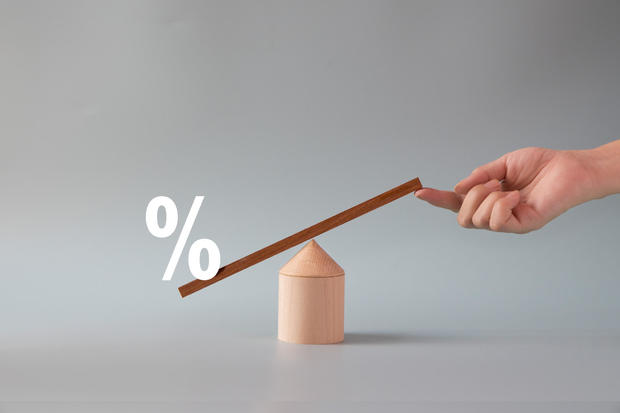When will credit card interest rates drop below 20%?
The economy is in a state of transition. Inflation is finally down, the Federal Reserve is making policy changes and interest rates are starting to ease.
That's good news for consumers and, potentially, credit card users, too. Interest rates on credit cards have skyrocketed in recent years, rising from 15% in 2020 to the record high of nearly 23% they sit at today. With the Fed cutting rates, credit card rates could presumably drop soon, too.
Could they fall below 20%, though? Here's what experts have to say.
Use debt relief to get rid of your credit card debt.
When will credit card interest rates drop below 20%?
Credit card rates have been on a steep run-up for most of the last decade. In fact, in 2015, the average rate was just 11%.
Experts say the steady rise comes down to many factors. For one, high inflation has played a role.
"When prices of goods go up and wage increases are less, then consumers don't have the necessary funds to cover the expenses, so they will throw down their plastic and finance it," Eric Elkins, CEO of financial consulting firm Double E, says.
Credit card issuers take advantage of this, Elkins says, increasing their APRs — and therefore profits — while cards are seeing higher usage.
"They are also expecting more people to not be able to pay off their credit cards," Elkins says, so higher rates "can help subsidize those losses."
The Federal Reserve also has a lot to do with increasing credit card rates. The central bank sets the federal funds rate, which is the basis for the prime rate — and variable-rate products like credit cards and some loans.
That means when the Fed raises its rate, which it did 11 times in 2022 and 2023, the prime rate and credit card rates rise, too.
"We came out of a period of a fed funds rate of near-zero," says Christopher Mediate, president of Mediate Financial. "When the Federal Reserve consistently drove rates higher to get ahead of the inflation war, credit card companies followed by raising rates."
Finally, increasing margins — or the portion of the rate companies charge to make a profit — are at work as well. Much of this has to do with rising credit card fraud, experts say, which results in significant losses to credit card issuers. Charging higher rates can help offset those losses.
"An alarming trend that has been occurring in the credit card industry has been the spread between the prime rate and to what they charge," Mediate says. "Historically, that spread was only around 3%. Now, it's been much greater."
Start eliminating your credit card debt now.
Here's what to expect from credit card rates
The Fed finally started reducing the federal funds rate at its meeting last month. While mortgage rates have already started to decline as a result, most experts expect credit card rates to hold steady — at least for the near term.
"Looking forward over the next few months and even into 2025, I wouldn't get too excited about rates coming down," says Nate Towers, director at Five Pathways Financial. "Even with the Fed's recent drop in rates in September, it's not going to help those credit card companies budge right now."
For card rates to drop noticeably, a lot of things would need to fall into place.
"We'd need much steeper cuts, good job report numbers and a healthy overall national economy to see any decrease in credit card rates," says John Gillet, founder of Gillet Agency, a financial and retirement planning firm. "These factors will allay the fears of credit card issuers about credit card default risk that will ultimately trickle down to benefit the consumers with lower credit card interest rates. It's a reciprocal effect."
Unfortunately, this likely means a sub-20% credit card rate isn't in the cards for most consumers anytime soon.
"That [a credit card rate decrease] is about as likely as riding a unicorn to work," Towers says.
"For rates to drop substantially, we'd need a complete 180 — like the Fed putting the brakes on, inflation magically vanishing, and lenders suddenly deciding they've squeezed us enough," Towers says. "I'm not holding my breath for that one."
The bottom line
It seems unlikely that credit card rates are going to plummet anytime soon, so if you're dealing with high credit card debt, it might be time to explore other options. Consolidating your credit card debt, for example, could offer a way to reduce your interest rate and pay off your balances more affordably. Good options for this include home equity loans and home equity lines of credit (HELOCs) or debt consolidation loans. Just make sure you shop around for the best rate. You can also seek help from a credit counselor or financial advisor or find a local debt relief provider. These offer services like debt settlement, debt management, debt forgiveness, collections help and more.




